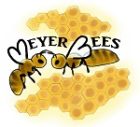If you’re a beekeeper looking to expand your colony or start fresh with a strong foundation, honey bee nucs offer a convenient and efficient solution. A honey bee nuc, short for “nucleus colony,” is a small, manageable starter colony that includes worker bees, a laying queen, brood, and food stores — all the essential components of a thriving hive. Whether you’re a seasoned apiarist or a beginner, purchasing a nuc is one of the best ways to ensure success in beekeeping.
What Are Honey Bee Nucs?
A honey bee nuc typically comes with 4 to 5 frames filled with bees, brood (eggs, larvae, and pupae), pollen, nectar, and an already accepted, mated queen. These miniature colonies are taken from larger, established hives and are designed to transition smoothly into a full-sized beehive. Since the bees are already familiar with their queen and have begun building out their brood, nucs give your apiary a strong head start.
Benefits of Buying a Honey Bee Nuc
1. Faster Hive Establishment:
Unlike installing a package of bees that still needs to accept a new queen and build a comb, a nuc is already functioning. This means the bees are settled, working, and raising brood, which significantly shortens the time it takes to establish a productive colony.
2. Higher Success Rate:
Because nucs include a laying queen and brood in all stages of development, they tend to have higher survival and success rates. The colony is already well-organized and focused, giving beekeepers peace of mind.
3. Less Stress for the Bees:
With a familiar queen and established brood pattern, nucs experience less stress than package bees. The colony dynamic is stable, which promotes better health and productivity.
4. Early Honey Production:
Since nucs are already functioning mini-hives, they can get to work faster. In the right conditions, they may even produce surplus honey in their first season.
What to Look for When Buying a Nuc
When shopping for honey bee nucs for sale, consider the following:
- Queen Quality: Ensure the queen is mated and actively laying eggs. A young, healthy queen will increase colony productivity and longevity.
- Colony Strength: Look for frames that are densely covered in bees and contain a good mix of eggs, larvae, and capped broods.
- Disease-Free: Reputable sellers inspect for common diseases and pests in bees, such as varroa mites, foulbrood, and chalkbrood. Ask about health certifications or treatment history.
- Local Adaptation: Buying nucs from local sources helps ensure the bees you are purchasing are adapted to your climate and forage conditions, increasing their chances of survival.
When and Where to Buy Honey Bee Nucs
Nucs are typically available in early spring when bee breeders split hives to produce new colonies. Due to high demand, it’s wise to pre-order your nucs in the winter or early spring to secure availability.
Local beekeeping supply stores, commercial apiaries, and specialized breeders are great sources. Some even offer nucs with specific bee breeds like Italian, Carniolan, or Russian bees, depending on your preference for temperament, honey production, and disease resistance.
Setting Up Your New Nuc
Once you receive your nuc, it’s important to transfer the frames into a standard hive body as soon as possible. Make sure your hive is well-ventilated and located in a bee-friendly area with access to water and floral resources.
Inspect your nuc regularly after installation. Within a few weeks, the colony should grow quickly, drawing out additional comb, raising brood, and collecting nectar and pollen.
Conclusion
Investing in honey bee nucs for sale is a smart choice for beekeepers who want a robust, ready-to-grow colony. With the right care and setup, nucs can quickly become thriving hives that contribute to pollination, honey production, and overall apiary success. Choose wisely, prepare your hive, and enjoy the rewards of healthy, happy bees.

